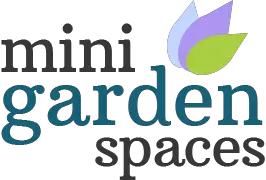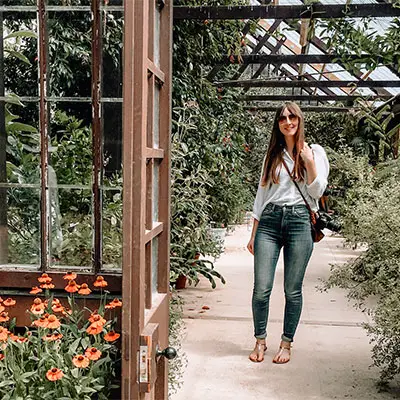14 Items You Shouldn’t Put in a Compost Bin
July, 2022 |Composting is a fantastic gardening habit to build, whether you’re composting on a balcony or at the bottom of your garden. You’re not only recycling food waste but you’re creating your own free compost at the same time.
However, knowing what you shouldn’t put in a compost bin is just as important as knowing what can be composted. Adding the right ingredients can save you from unwanted smells and low-quality compost.
Avoid putting these in your compost bin
In small garden spaces, especially on balconies, your compost bin will be closer to windows, doors, and seating areas. This means you’re at risk of unwanted odors taking over when you’re sipping your morning coffee or relaxing with guests in the kitchen. Not ideal!
In our guide to composting on a balcony, we mention certain food types that can cause excessive smells. While this may be ok in a compost bin at the bottom of a large garden, it’s not great for a balcony.
To keep unwanted smells at bay and to create healthy, nutritious compost, here are 14 things you shouldn’t put in a compost bin:
1. Meat and fish (including bones)
Any animal product will have proteins that release unpleasant smells when decomposing. It will also attract a variety of pests, from rats and foxes to flies and maggots. Also, bones won’t break down, so they may get in the way as you mix and aerate your compost.

2. Dairy, fats, and oils (cheese, yogurts, milk)
Like meat, dairy items contain proteins that can seriously smell as they break down. Any fat-based food product will also attract a plethora of pests. Even if you’re composting on a balcony, flies can be a really unpleasant pest to have hanging around.
3. Unwashed egg shells
Broken eggshells can add calcium to your compost. However, it’s best to make sure that they’re washed as any residue of the egg white can attract rats and other pests.

4. Cooked food
Cooked food will likely contain oils and other fats that attract pests. Roasted veg coated in olive oil or cooked meals should ideally be left out of your compost bin.
This includes rice too. Raw or cooked, rice is considered a high-risk food because it may contain Bacillus cereus spores. If left in a warm environment (like a kitchen counter or compost bin) these spores can develop into bacteria.
While we’re obviously not consuming compost, this harmful bacteria can affect the growth of the ‘good bacteria’ which break down other waste. It also adds to the risk of food poisoning if you handle the compost and don’t wash your hands, or use ‘infected’ compost in your vegetable garden.
5. Baked goods and processed food
These food types usually have high sugar and fat contents, which again can provide an irresistible treat to pests. While old bread could be added in moderation, the sugars can attract pests.
6. Wood, card, or paper that has been chemically treated
Chemically treated sawdust, varnished or painted wood, and laminated food packaging should all be avoided. These products may biodegrade, but you’ll be left with residue chemicals or plastics that don’t belong in compost.
7. Toxic plants
Black walnut, pecan, and hickory trees/shrubs all contain a compound known as juglone. It can inhibit the growth of plants and is often used as a herbicide, so it’s definitely something you don’t want in your compost. Black walnut fruits contain tasty seeds, but don’t add the husks to your compost!

8. Plants that have been chemically treated
Plants that have been recently sprayed with pesticides, herbicides, or insecticides shouldn’t be added to a compost bin. If for example, you have used a herbicide to destroy a stubborn patch of weeds, adding those weeds into your compost could damage future plants that you try and grow in that compost.
9. Fecal matter (human, dog, or cat litter!)
While this type of waste is indeed biodegradable, waste from animals and even humans has the potential to introduce diseases. Not to mention the smells. Your neighbor or the apartment next door would not be pleased.
10. Coal ash
After a barbecue, you may be tempted to empty the ash into a compost bin. While wood ash is fine, coal ash can contain trace levels of toxic metals which can be picked up by plants that you grow in your future compost. Like vegetables!
11. Diseased garden or house plants
If any of your balcony plants have succumbed to a plant disease it’s generally advised not to add them to your compost bin as they might stay within the compost and infect your new plants. If you’re hot composting, the high temperature (130 to 160 degrees Fahrenheit or 55-70 degrees celsius) should destroy the spores or bacteria on infected plants.
12. Weeds that have flowered and created seeds
Weeds can be added to your compost bin, but it’s often best to avoid adding weeds with seed heads. The seeds could stay dormant and may start growing again when you start using your compost.
13. Tomatoes
A surprising food to consider avoiding is tomatoes. In large amounts, they could affect the acidity of your compost and kill some of the bacteria that are needed to break down the other organic waste.
However, the main problem is usually the seeds. Like many weeds, they can often survive the composting process and you might find lots of tomato seedlings sprouting up after you use your compost!
14. Dryer lint
Dryer lint can contain synthetic fibers and microplastics that shouldn’t be introduced into your compost. Hair and natural fabric fibers (like cotton) can be added to a compost bin but any plastics or synthetic materials should be avoided.

Exceptions to the rule: Large vs Small Gardens
In a large garden, you may get away with adding some of these items. For example, large, hot composting piles can usually reach temperatures that are sufficient enough to kill many weed seeds.
However, the majority of items on this list are to help you avoid pests and smells, and also to ensure ‘healthy’ compost that won’t harm the plants you end up using it with (e.g. if you’ve composted diseased plant material).
Some gardeners even add compostable toilet waste to a composting pile and use it around the base of fruit trees, etc. It all breaks down into the same crumbly soil eventually! But obviously, this isn’t possible in a small garden where smells could be an issue, and illnesses or medications can affect whether this is considered safe to do.
Why does my compost bin still smell?
If you’re adding all the correct things to your compost and find that you’re still combating unwanted odors there are a few other things that need to change.
Make sure your compost is aerated. This will depend on your composting method. But make sure your bin has aeration holes, or you mix up the contents frequently to introduce oxygen. For more tips, check out our guide to tackling bad-smelling compost.






